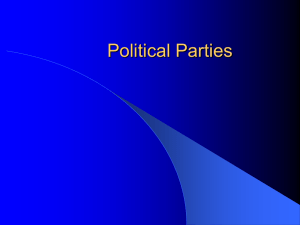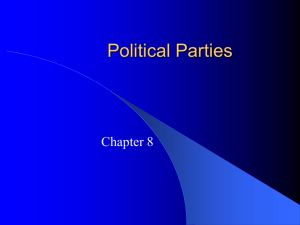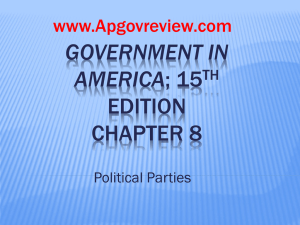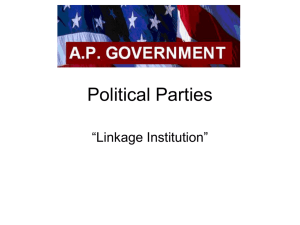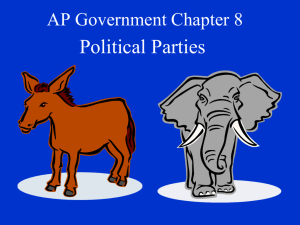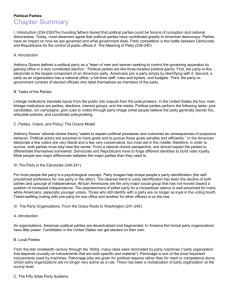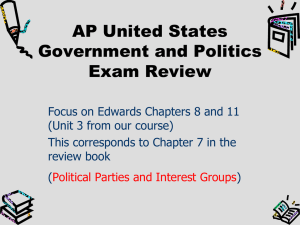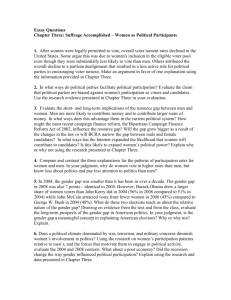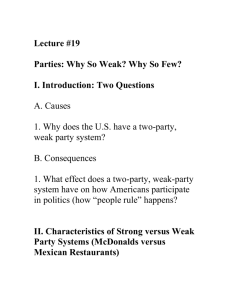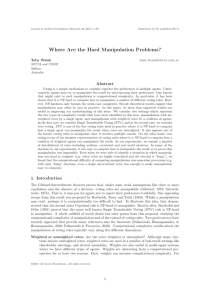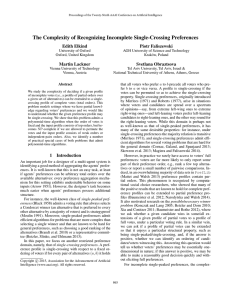political parties - Houston Independent School District
advertisement
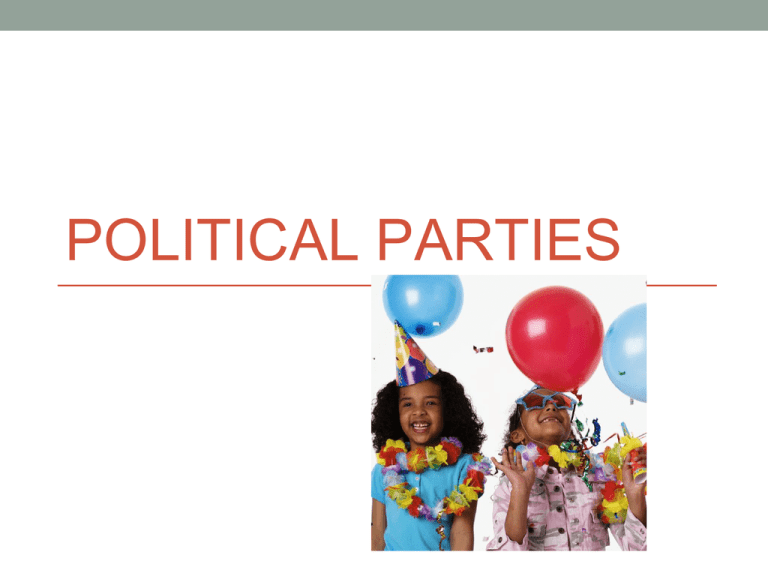
POLITICAL PARTIES The Meaning of Party ✦Political Party: ✦A team of men and women seeking to control government by gaining offices through elections ✦Parties can be thought of in three parts: ✦Party in the electorate ✦Party as an organization ✦Party in government Functions of Parties • Parties Nominate Candidates • Parties Run Campaigns • Parties Give Cues to Voters • Parties Articulate Policies through Their platforms • Parties Coordinate Policymaking Functions of Parties • Parties sponsor grassroots mobilization, energizing members to support a candidate or proposal. • Parties are a linkage institution connecting citizens with government. The Party in the Electorate • Voters • Those registered for a party will likely vote for its candidates • Ticket-splitting: • Voting for candidates of different parties. • The result is often divided government. The Party Organizations: From the Grass Roots to Washington • Local and State Parties • Party Machines exchanged votes for favors • Patronage—when a patron in government gives political supporters benefits • Pendleton Civil Service Act led to a merit based civil service and diminished machines. • National parties are weak compared to state and local parties. The Party Organizations: From the Grass Roots to Washington • Local (State) Parties Run Primaries • Closed: voters must be registered with their party in advance and can only vote for that party • Open: independents and those registered to a party may vote in that party’s primary • Primaries and caucuses weaken national party organizations The Party Organizations: From the Grass Roots to Washington The National Party Organizations National Convention National Committee Relative to other countries, our national organizations are weak. What is the Tea Party? The Tea Party stands for “taxed enough already.” The Tea Party, although it runs candidates, is not a party. Tea Party candidates run as Republicans. So, the Tea Party is a faction within the Republican Party The Party in Government: Promises and Policy • Party members actually elected to government. • Candidates are less dependent on parties to get elected than other countries, but they still need help. • Lack of Party Discipline in U.S. • Coalition: • A group of groups with a common interest who support a political party over time. • NOT the same as a coalition in comparative government. Party Eras in American History • Party Eras • When one party wins most elections because its coalition is bigger • Critical Election • An electoral “earthquake” where new issues and new coalitions emerge, beginning a new party era. • Party Realignment • The shifting of groups in a coalition, usually before a critical election. Groups leave one party and support the other party. Party Eras in American History 1932-1964: New Deal Coalition • Forged by Democrats- relied upon urban working class, ethnic groups, Catholics and Jews, the poor, Southerners Party Eras in American History • 1968-Present: Era of Divided Party Government • One party holds the presidency while one or both houses of Congress are controlled by the other party. • Party dealignmentdisengagement of people from parties • Rise of independent voters Third Parties: Impact on American Politics ●Political parties other than Democrat or Republican ●Rarely win elections ●But, they bring new groups and people into politics ●Splinter, Economic Protest, Charismatic Leader Third Parties: Their Impact on American Politics • Winner-take-all system: • First Past the Post/Single Member District • Legislative seats awarded only to first place finishers. • Proportional Representation: • Legislative seats awarded based on votes received by party- more votes, more seats • Coalition Government: • Two or more parties join to run government Understanding Political Parties • Is the Party over? • No longer chief source of information for voters • But, state and national party organizations are getting stronger • Majority of people still identify with a party, but still split their tickets • Parties will continue to be around
